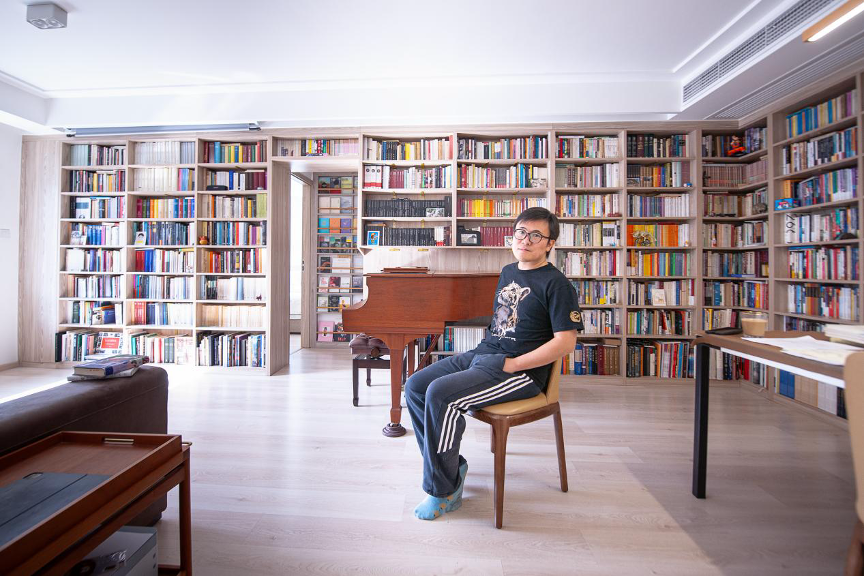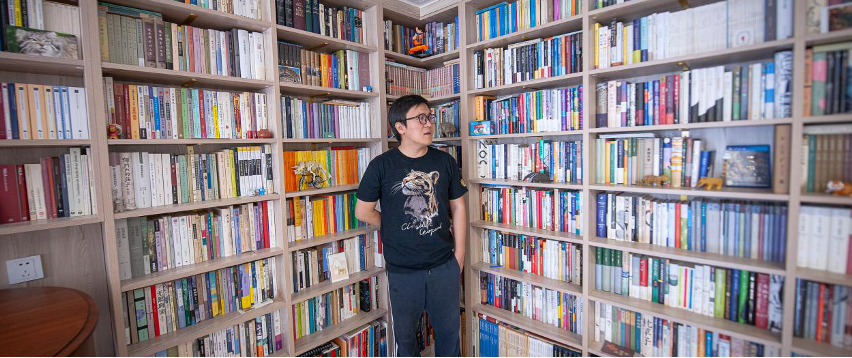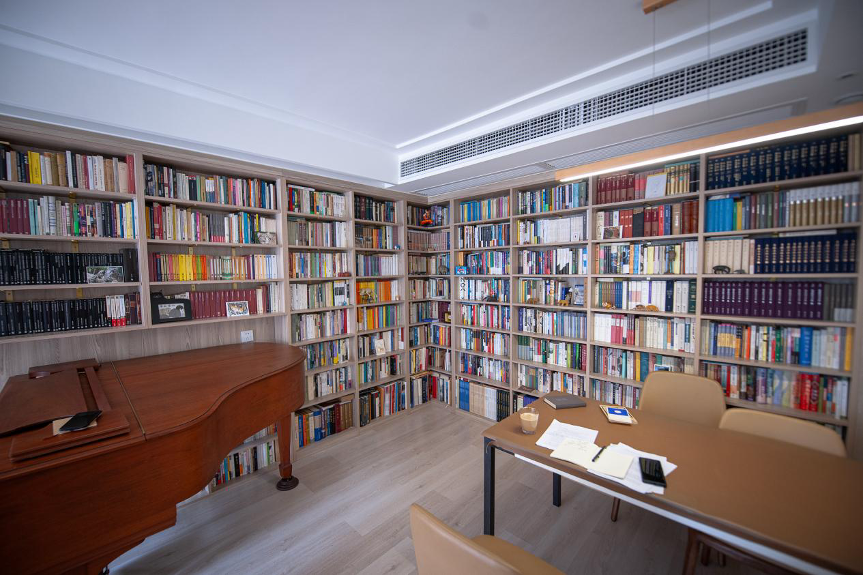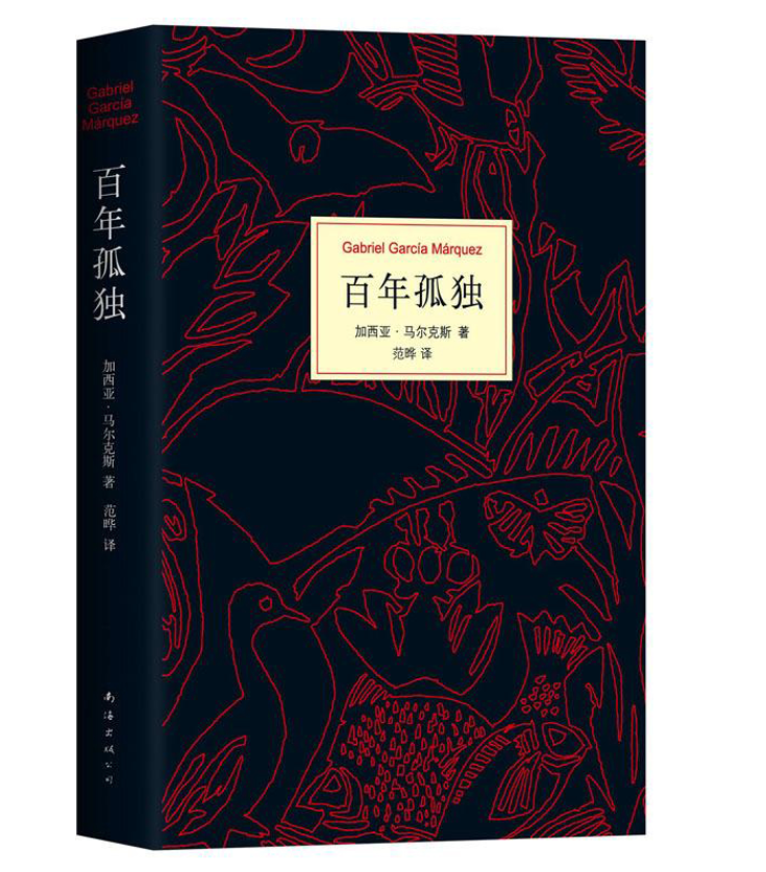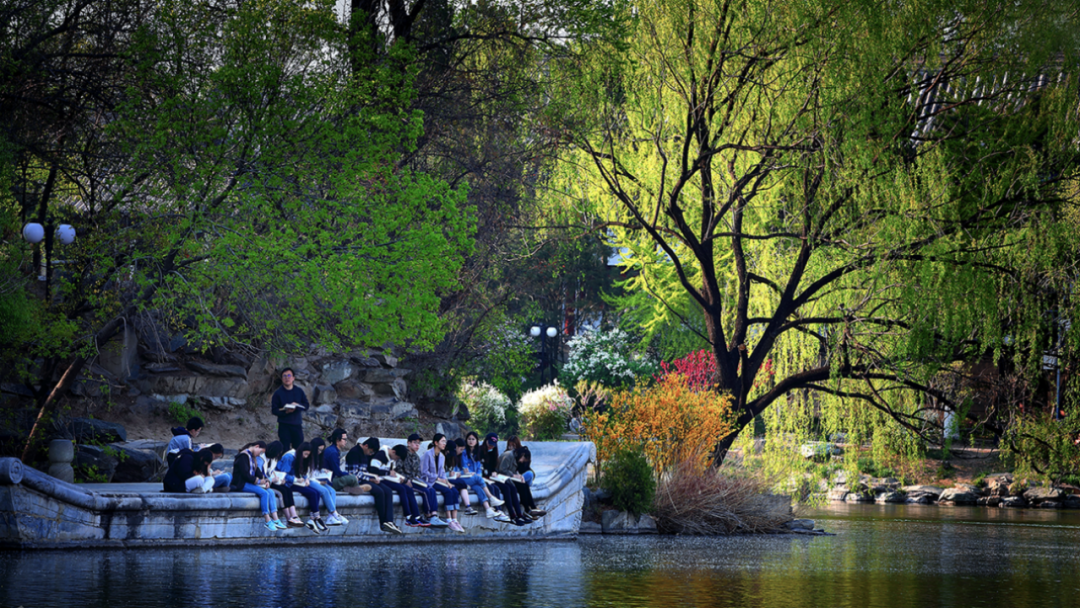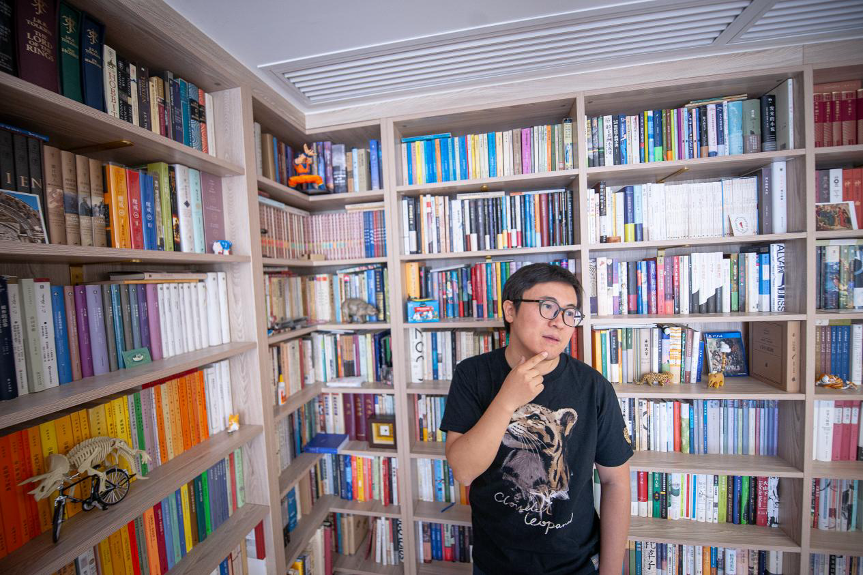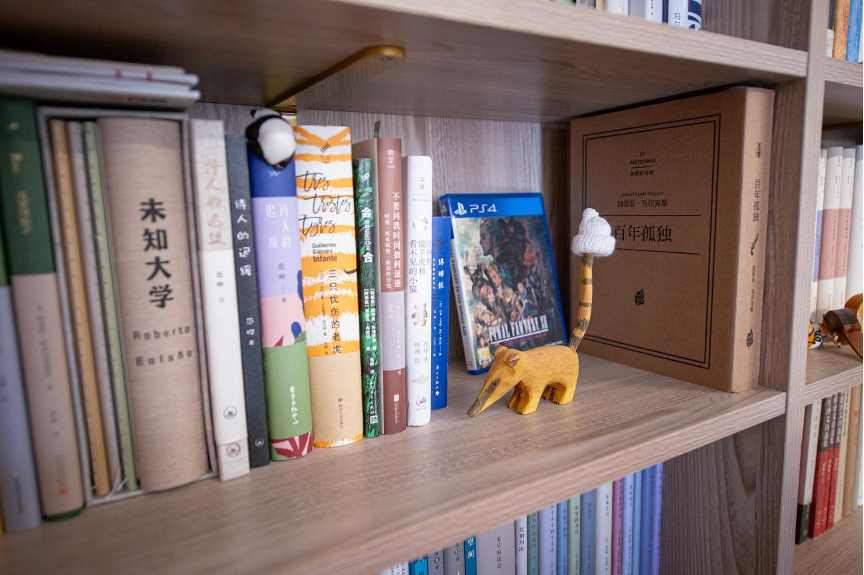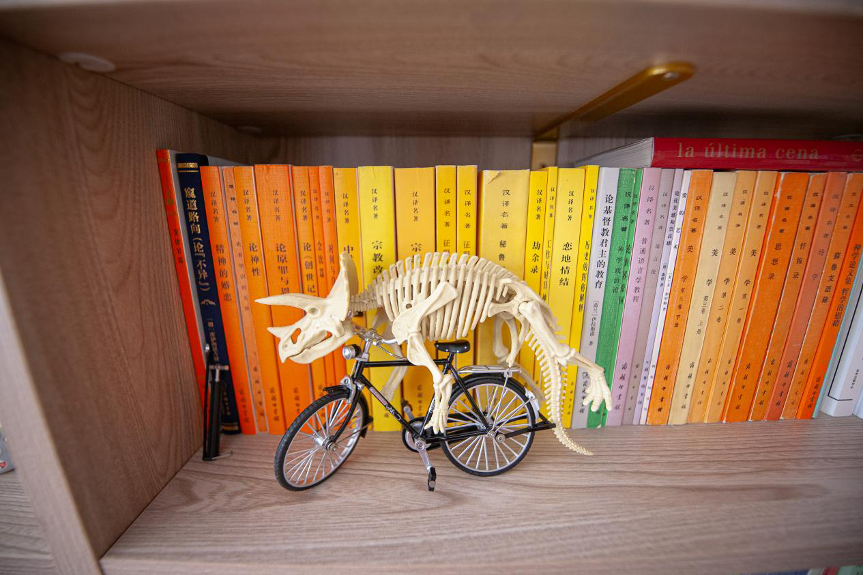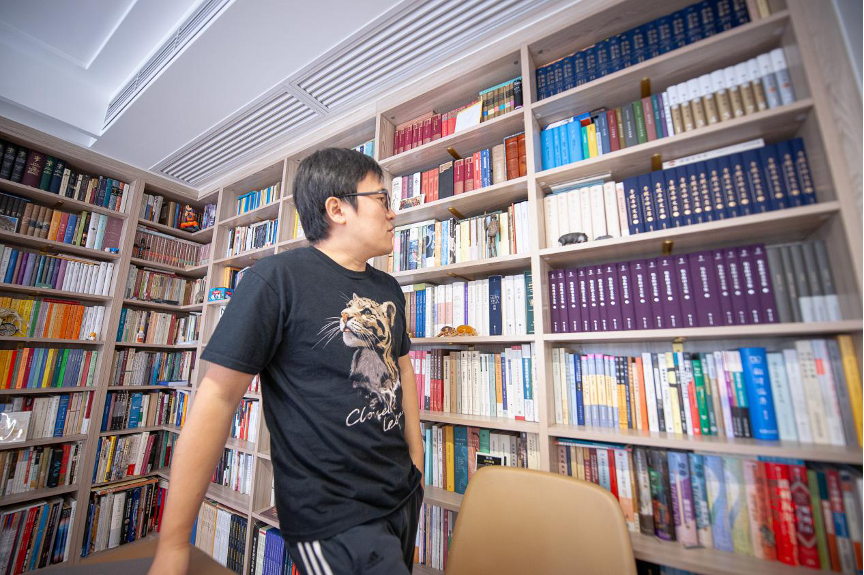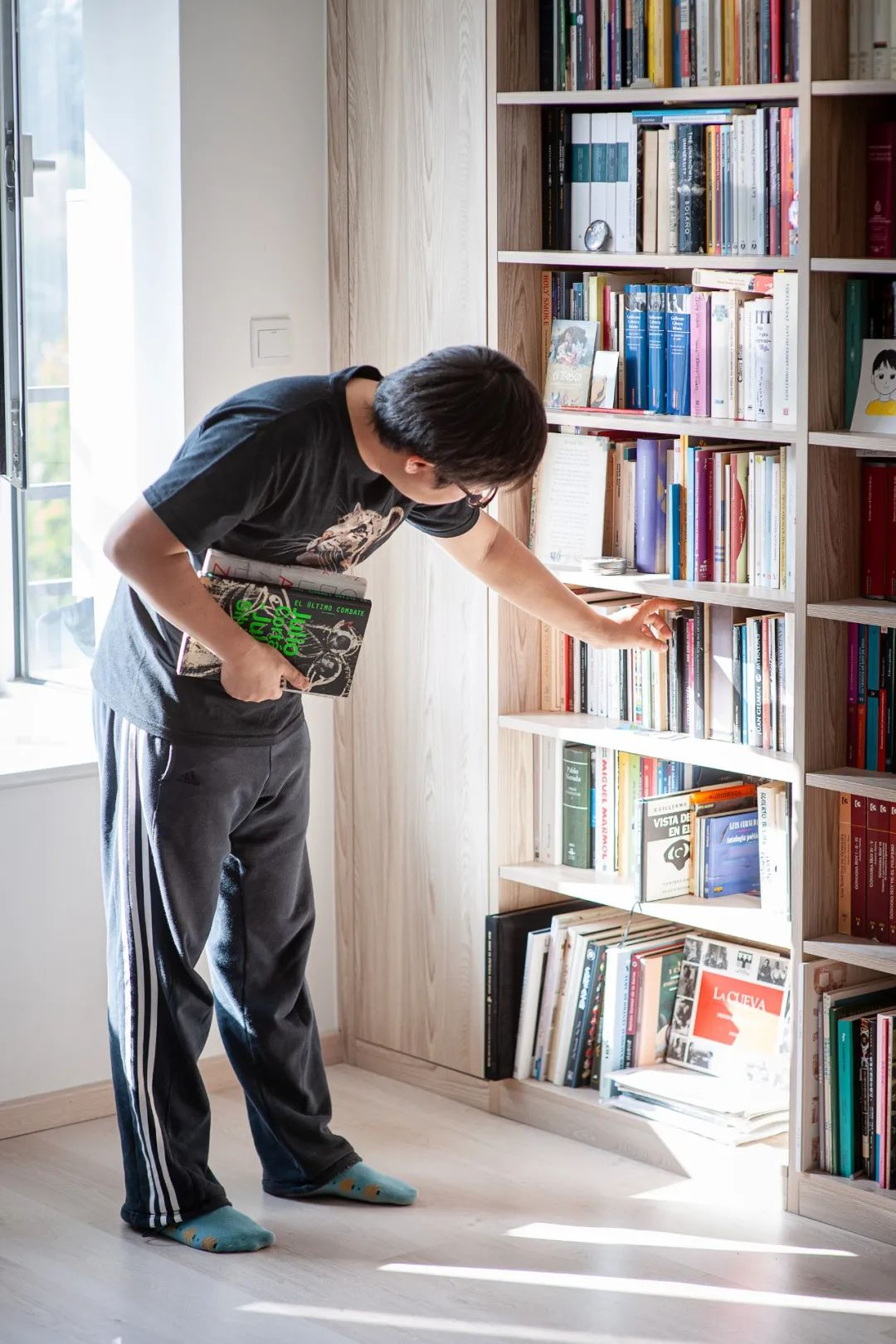Editor's note: Meet Prof. Fan Ye, translator of One Hundred Years of Solitude, avid reader of Latin American literature, self-proclaimed “urban wanderer,” and an animal lover. In the latest chapter of the “A Scholar's Study” series, the youthful professor of Spanish at Peking University takes us on a tour around his book-filled sanctuary and shares his philosophy in life as a reader, translator, and writer.
Just like Don Fernando in One Hundred Years of Solitude, literature and reading are indispensable elements of Prof. Fan Ye’s daily life and academic research. The School of Foreign Languages associate professor does not have a dedicated study room in his home. Rather, his entire residence is a study room, with shelves of books decorating every wall.
Most eye-catching is Fan Ye’s vast collection of Hispanic American literature, out of which are works by Cortázar, Márquez, Bolaño, and Cabrera Infante, which he has translated. “There were so many books related to Márquez that I couldn’t fit them all in one row,” Fan said. As such, he earned himself the nickname, “Latin American literature fanboy”.
Fan Ye and Latin American Literature
Fan Ye is best known for his Chinese translation of Gabriel García Márquez’s One Hundred Years of Solitude, which was first published in 2011. In the 12 years since, the Chinese edition has been reprinted 122 times, influencing a generation of Chinese writers and readers. For Fan Ye, the translator, his fate with translation began when he came to Peking University to study Spanish.
In 1995, Fan Ye was inspired by Professor Zhao Zhenjiang’s words, “Latin American literature has great potential,” and studied Spanish throughout his undergraduate to Ph.D. studies at Peking University, after which he stayed on to become a professor. Fan Ye completed his first official translation of Argentine writer Julio Cortázar’s short story collection Todos los fuegos el fuego (All Fires the Fire) while he was serving as the Chinese director of the Confucius Institute in Granada, Spain. Just a year later, Fan Ye received an invitation to trial translate One Hundred Years of Solitude.
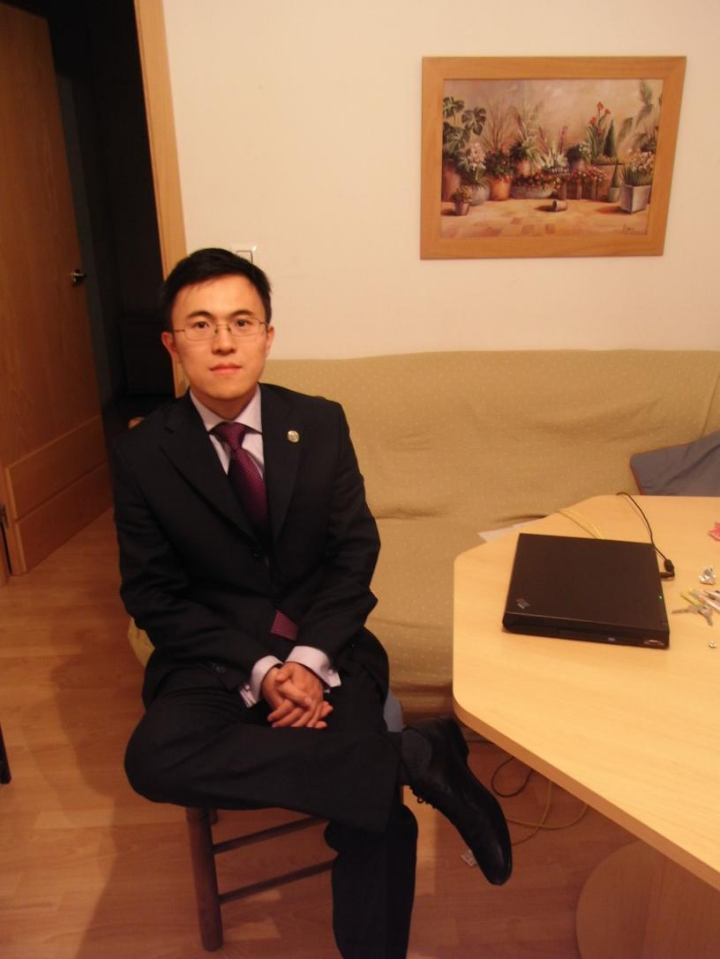
Fan Ye in his room in Granada, before the opening ceremony of the Confucius Institute in October 2008
The best-selling Chinese edition of One Hundred Years of Solitude introduced Fan Ye to a wider audience of readers and Spanish literature translators. He once said, “One Hundred Years of Solitude changed my life.” Over the years, he has translated several works of Latin American literature, including Chronicle of the Murdered House by Brazillian novelist Lúcio Cardoso (2012), To the Future Poet by Spanish poet Luis Cernuda (2015), The Unknown University by Chilean novelist Roberto Bolaño (2017, co-translated), and Three Sad Tigers by Cuban novelist Guillermo Cabrera Infante (2021).
Fan Ye and Yanyuan
In the eyes of PKU students, Fan Ye is a respectable professor. As one of the first schools in China to offer Spanish Literature as a major and the only school to offer it at the Ph.D. level, the Department of Spanish at PKU has produced two winners of the Lu Xun Literary Prize for Literary Translation, Professors Zhao Zhenjiang and Lu Yanping. The tradition of literary translation has become the academic lineage that Fan Ye consciously inherited.
When they are not in the classroom, Fan Ye and his students can often be found at the Shifang (Marble boat-shaped structure) by the Weiming Lake, where they sit in a row and read poetry together. “Weiming Lake meets my imagination of Locus amoenus (Latin for “pleasant place”) in every way — it is an idyllic landscape with trees and shade, grassy meadows, and clear water. Young scholars came and went, while the Shifang stayed on to witness their youth, echoing another popular theme in Renaissance literature, Carpe diem (“seize the day”).”
Fan Ye’s Life Philosophy
Ornaments of jaguars, anteaters and other exotic birds and animals decorate Fan Ye’s bookshelves — visualizations of the professor’s interesting personality. The woolen nightcap goes onto the South American coati, while the dinosaur fossil rides a bicycle model… Within limited space, Fan Ye created a wonderland out of his vivid imagination.
Describing himself as an “urban wanderer” in Walter Benjamin’s words, Fan Ye is easily attracted by unconventionality. The books that he chose to translate also reflect as much. From the poems by Luis Cernuda Bidón and Vicente Aleixandre, to novels by Julio Cortázar, García Márquez, and Carlos Fuentes, each work is represented by a distinctive writing style.
To a Future Poet written by Luis Cernuda and translated by Fan Ye
After the publication of One Hundred Years of Solitude, Fan Ye’s friends, including poets Chi He and Bao Huiyi, wrote handwritten annotations and corrections to the book. Upon hearing this, Fan Ye requested to exchange a new book for their heavily annotated copies. Every comment, from minor grammatical changes to evaluations of plot developments and connections to other literary works, was meticulously read by Fan Ye. Many of these suggestions were adopted and applied in the subsequent revised editions of One Hundred Years of Solitude. In the “map of friendship” that is Fan Ye’s study room, every annotation within the pages is a cherished coordinate.
“The Only Way is Forward”
In One Hundred Years of Solitude, books accompany the Catalan sage during his exile. Fan Ye’s study is also his “shelter.” This space, which accommodates a wealth of knowledge, grants Fan Ye ample freedom, allowing him to invite his beloved books into its embrace. Some books are chosen out of curiosity for their content, while others are selected for their aesthetic and comfortable bindings. However, perhaps because his reading interests are not far from his professional focus, the distinction between "professional books" and "leisure books" is not sharply defined. Some books were initially purchased purely out of interest but later proved useful in Fan Ye’s lectures or research writing. Thus, the categorization of changes over time, but what remains constant is Fan Ye’s dedication to and love for Spanish literature.
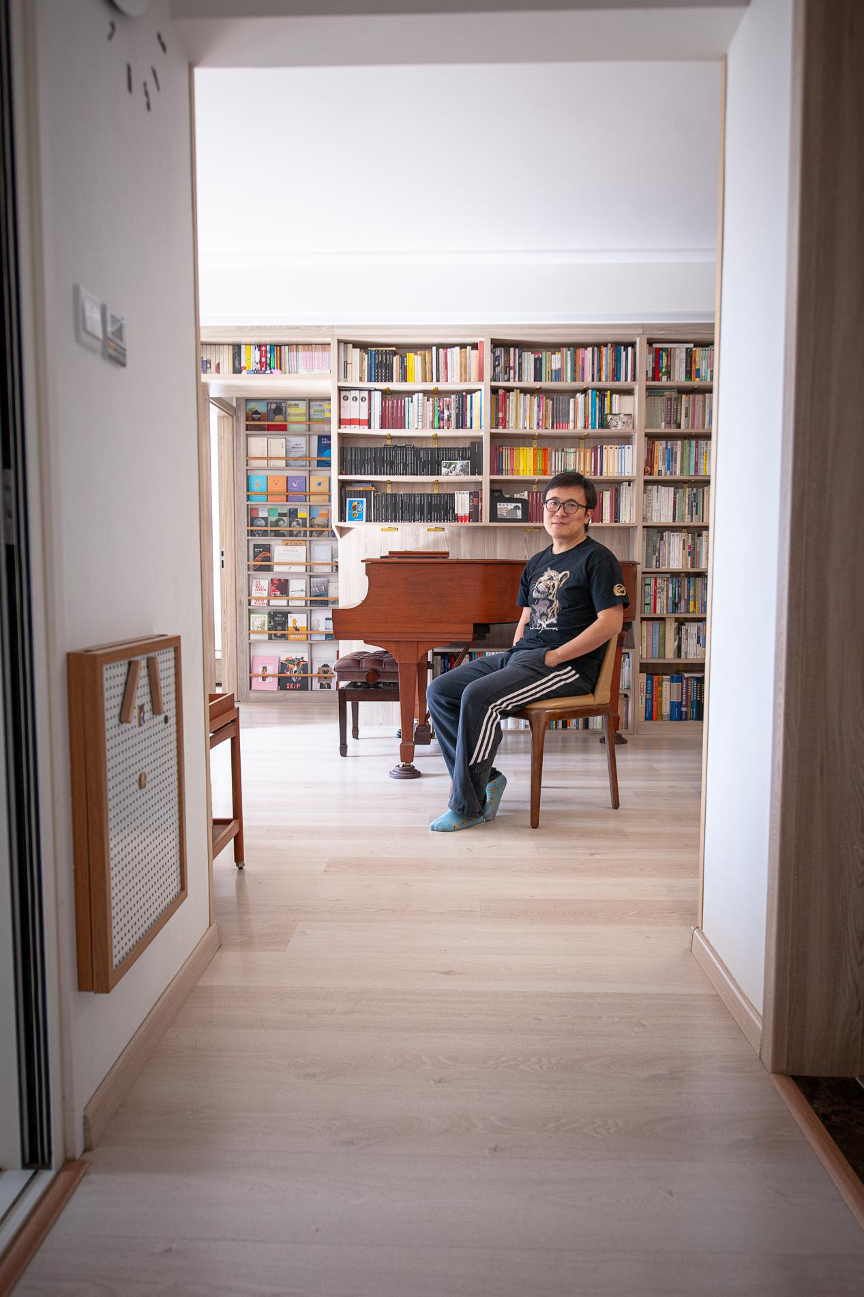
It has been 13 years since Fan Ye’s version of One Hundred Years of Solitude came out, and his new works are being published one after another. José Arcadio Buendía will stay in Macondo forever, but Fan Ye of Yanyuan will continue to pursue the “only way forward”—from his study room, towards the borderless Spanish-speaking universe.
Written by: Sun Fanshu
Edited by: Wu Jiayun
Photos by: Lu Chen, Courtesy of the interviewee
Source: PKU Official WeChat
